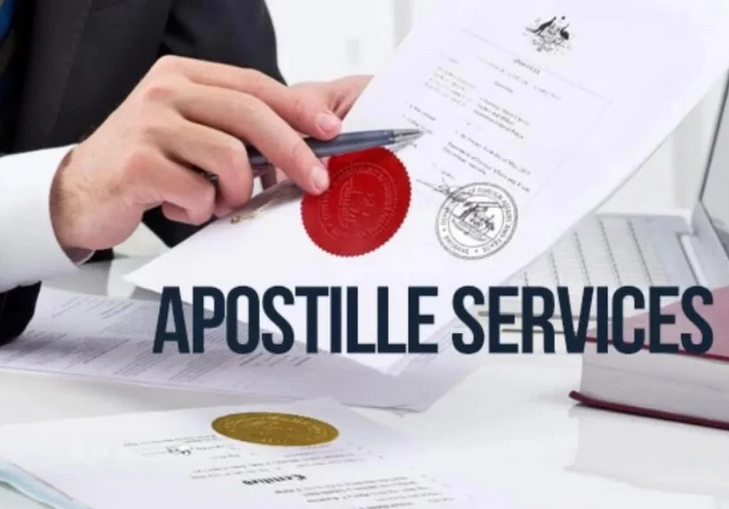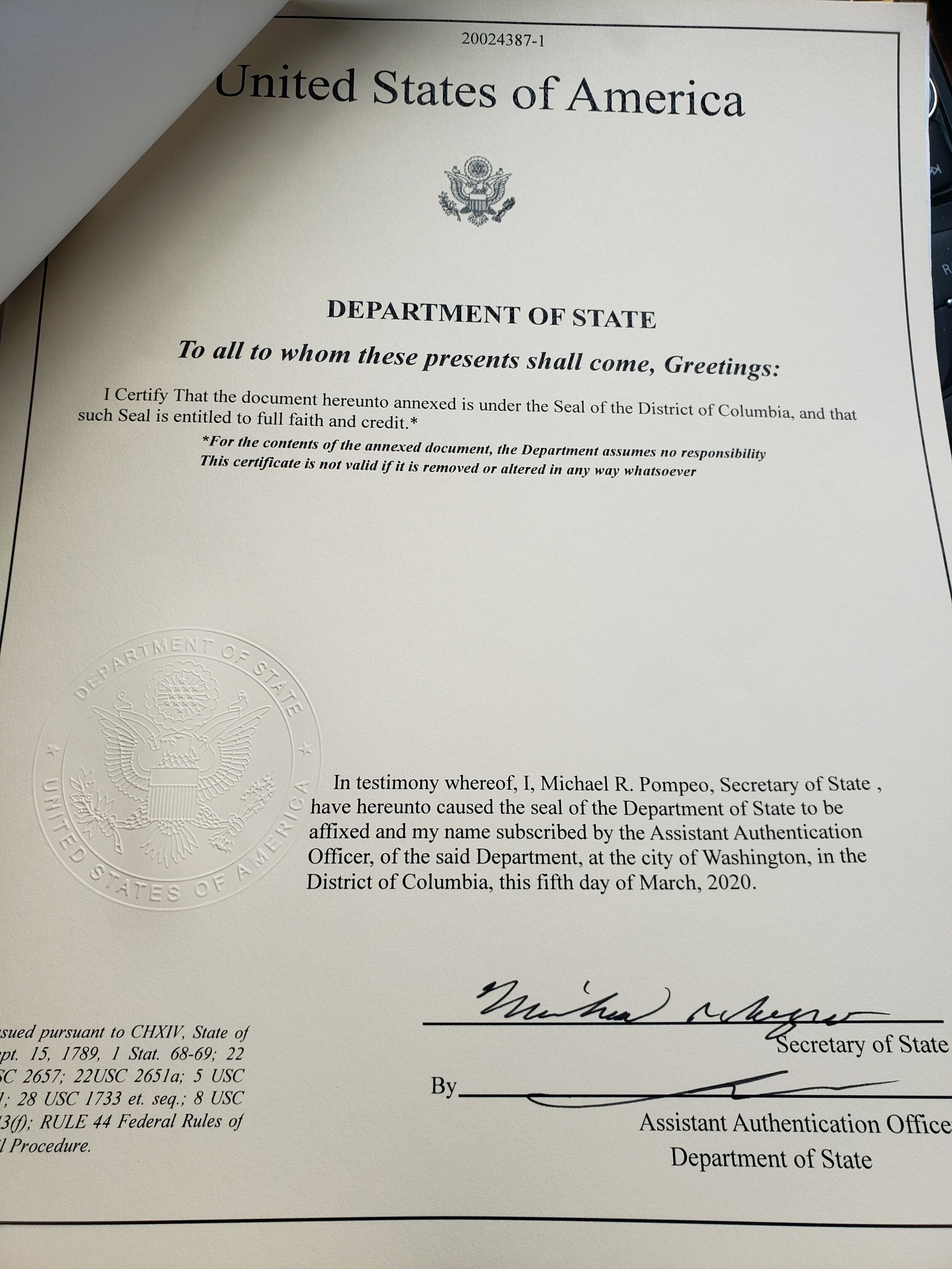Houston Texas Apostille Service: Your Course to International Recognition
Houston Texas Apostille Service: Your Course to International Recognition
Blog Article
Recognizing the Importance of Apostille Certification and Why It Is Essential for Lawful Papers
In the realm of legal documentation, the process of validating and authenticating papers for global use is a crucial element that can not be overlooked. Amongst the various mechanisms offered for this function, apostille qualification stands out as a structured and globally identified approach. Understanding the complexities and effects of apostille accreditation on legal records is vital for individuals and organizations taking part in cross-border activities. This certification carries extensive value in making certain the legitimacy and approval of critical documents beyond national boundaries, yet just what does it require, and why has it come to be crucial in today's globalized globe?
The Definition of Apostille Qualification
Apostille accreditation is a specialized form of authentication that verifies the legitimacy of a legal document for international usage. This certification is important for ensuring that documents originating in one country are recognized as legitimate in another, streamlining the process of cross-border purchases, legal procedures, or personal matters like marriage or adoption. The Hague Apostille Convention of 1961 established the framework for this simplified accreditation process among taking part nations.
To get an apostille certification, the designated authority in the document's country of beginning have to verify the document's credibility prior to affixing the apostille. This qualification validates that the signature, seal, or stamp on the record is authentic. Houston TX Apostille. It does not validate the materials of the document but instead the authority of the person or company issuing it. When connected, the apostille ensures that the paper will be accepted as valid in any type of various other nation that is component of the Apostille Convention, without the requirement for more accreditation.
Benefits of Apostille for Legal Papers
The use of apostille qualification improves the global recognition process for lawful papers, supplying significant benefits in assisting in lawful formalities and cross-border involvements. One crucial benefit of apostille accreditation is that it makes sure the authenticity of the file in question. By attaching an apostille certificate, the file comes to be readily accepted in nations that become part of the Hague Apostille Convention, removing the demand for further verification. This not only saves time but additionally reduces the governmental hurdles that frequently come with global record verification processes.
Moreover, apostille qualification improves the total performance of lawful treatments by streamlining the procedure of confirming the legitimacy of a record. On the whole, the advantages of apostille certification for lawful records are important in promoting smoother worldwide engagements and making certain conformity with lawful demands across boundaries.
Apostille Vs. Legalization: Trick Distinctions
When distinguishing in between the procedures of apostille qualification and legalisation for lawful papers, it is important to understand the vital distinctions in their corresponding verification approaches. An apostille is a simplified form of legalization that is approved among countries that become part of the Hague Apostille Convention. The apostille process verifies the authenticity of the file and the signature of the providing authority. It does not call for more embassy or consulate legalisation, making it an extra straightforward and economical approach for validating files worldwide.
On the various other hand, legalization is a much more traditional method that involves multiple steps of authentication. It needs verification by various authorities, consisting of federal government departments and foreign embassies or consulates in both the providing and getting countries. This procedure can be much more costly and time-consuming contrasted to acquiring an apostille. The selection in between apostille accreditation and legalization depends upon the particular requirements of the nation where the record will certainly be utilized. Recognizing these differences is vital for guaranteeing the appropriate authentication of legal documents for global usage.
Nations Accepting Apostille Qualification

While the Hague Apostille Convention has actually considerably streamlined the procedure of cross-border record verification, there are still countries that are not event to the convention - Houston TX Apostille. Because of this, papers destined for these countries may require traditional legalisation treatments through consular offices or consulates. It is crucial for people and organizations managing worldwide purchases to confirm the specific needs of the location country to make sure compliance with their legal requirements
Steps to Acquire Apostille for Papers
To get Related Site an apostille for your documents, you should start by recognizing the appropriate issuing authority in your nation. Once you have identified the appropriate authority, the following step is to guarantee that your file satisfies all the requirements for apostille qualification.
After confirming that your paper meets the criteria, you will need to fill out an apostille application form given by the releasing authority. This kind will certainly need information regarding the paper being confirmed and the country where it will be utilized. In addition to the completed application type, you will likely need to send the initial record, a copy of your identification, and any type of suitable charges.

Verdict
In verdict, apostille qualification plays a vital duty in ensuring the authenticity and legitimacy of legal documents for worldwide use (Houston TX Apostille). Understanding the relevance of apostille qualification is important for individuals and companies browsing the complexities of cross-border purchases and lawful issues. By getting apostille qualification, celebrations can streamline the process of record verification and verification, ultimately saving time and resources in the worldwide sector
To acquire an apostille certification, the marked authority in the file's country of origin should confirm the document's authenticity before affixing the apostille. Once affixed, the apostille makes sure that the record will be approved as legitimate in any kind of various other nation that is part of the Apostille Convention, without the requirement for additional qualification.
By affixing an apostille certification, the record becomes easily approved in countries that are part of the Hague Apostille Convention, getting rid of the requirement for further useful site authentication.Identifying in between apostille certification and click here for info legalisation exposes the differing acceptance of these authentication approaches throughout different countries, with some countries particularly identifying and adhering to the apostille procedure. The apostille certification is commonly accepted among nations that are component of the Hague Apostille Convention, which currently has 118 member states.
Report this page